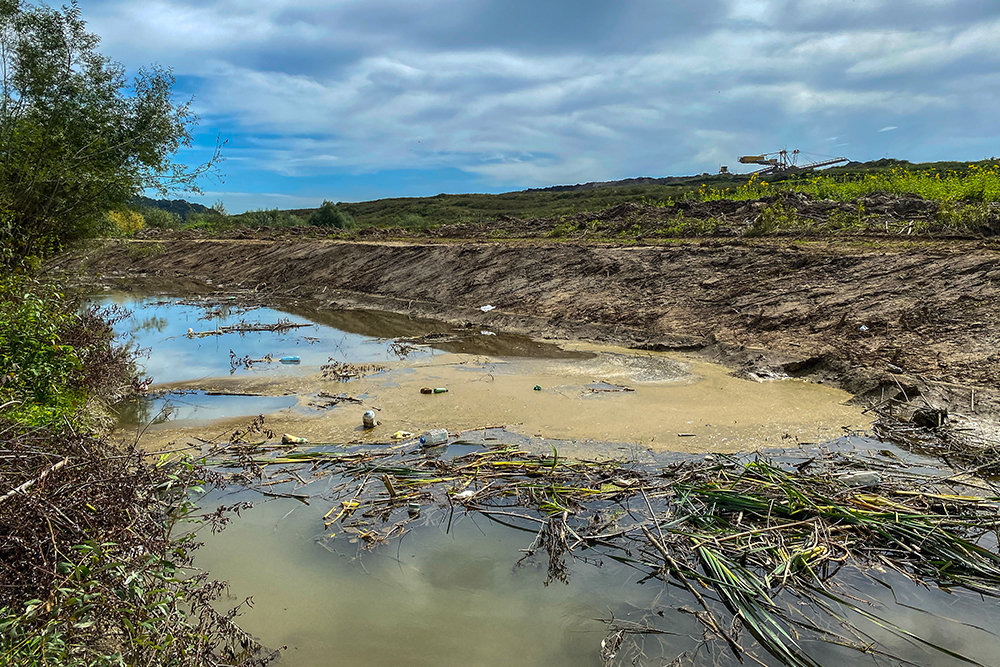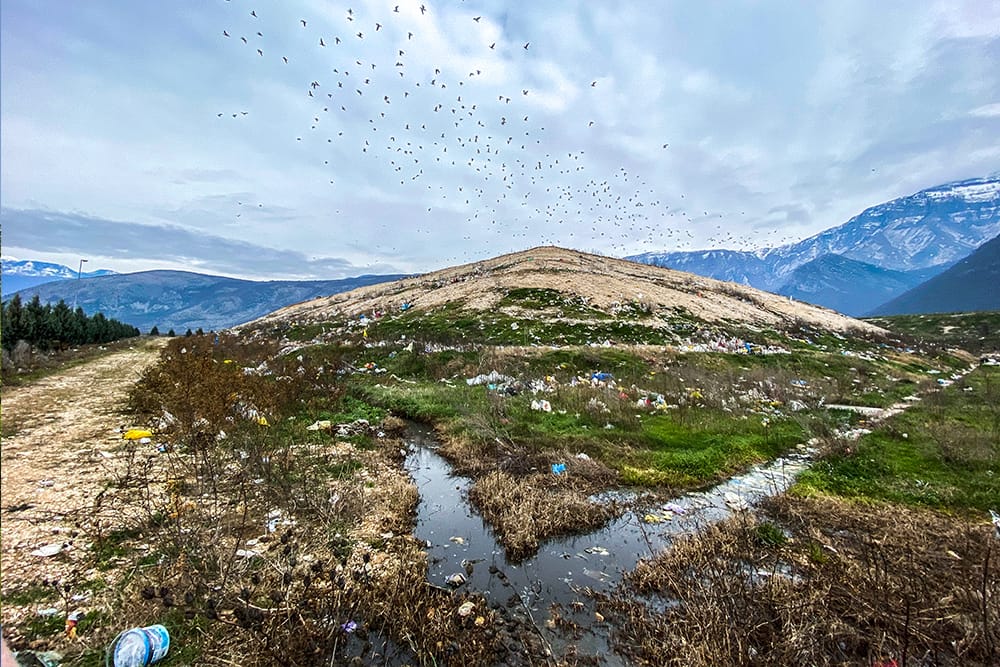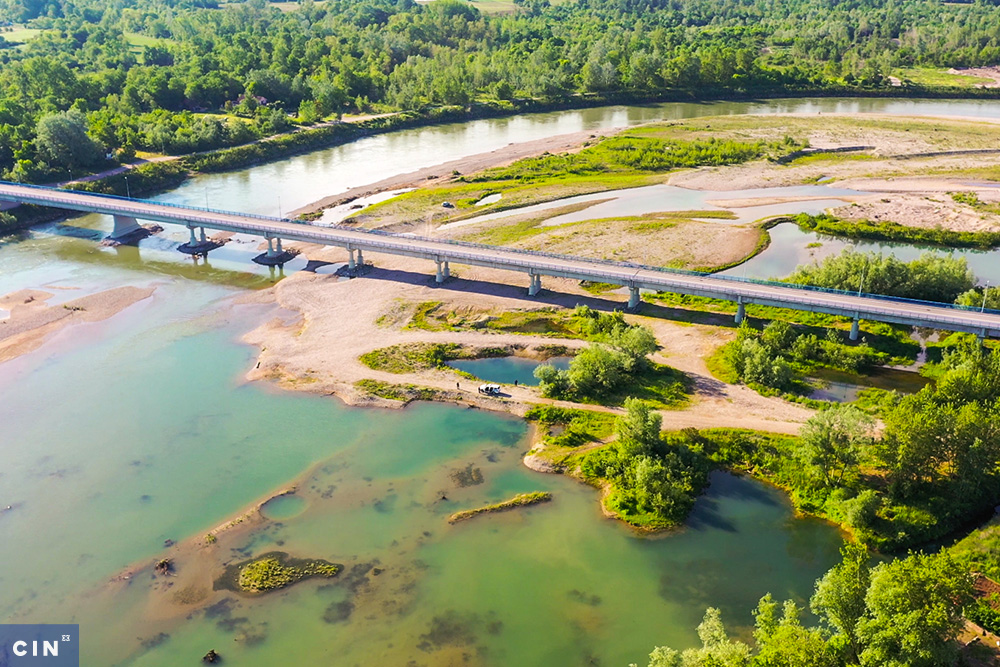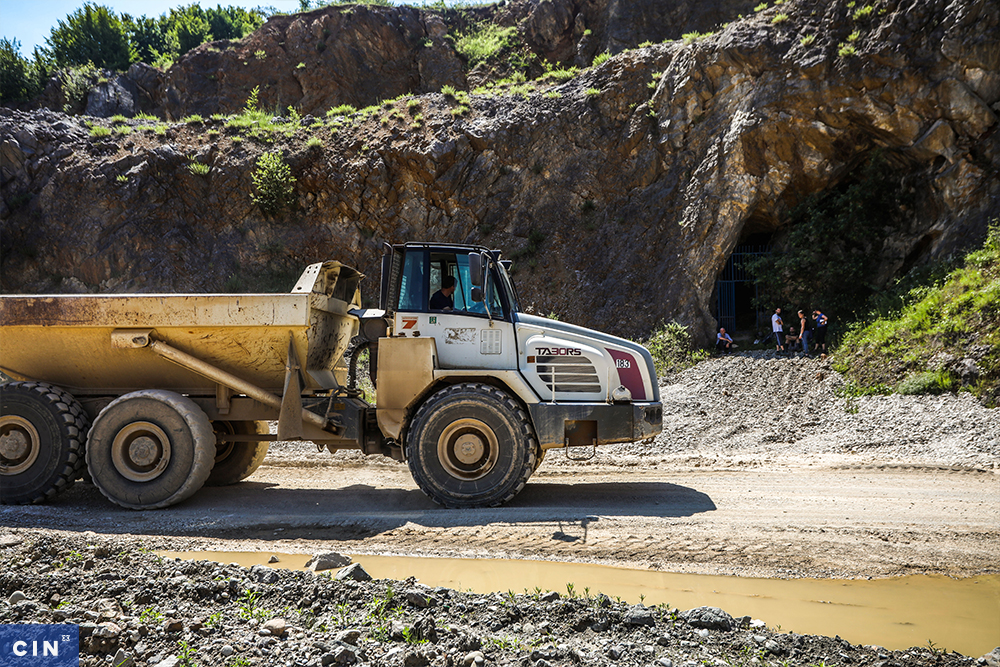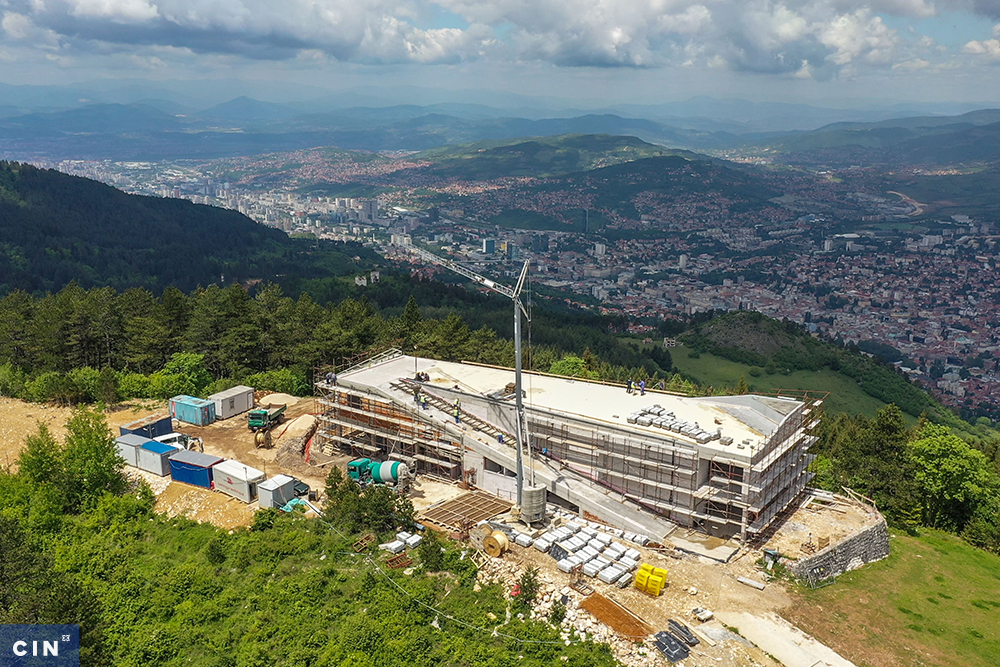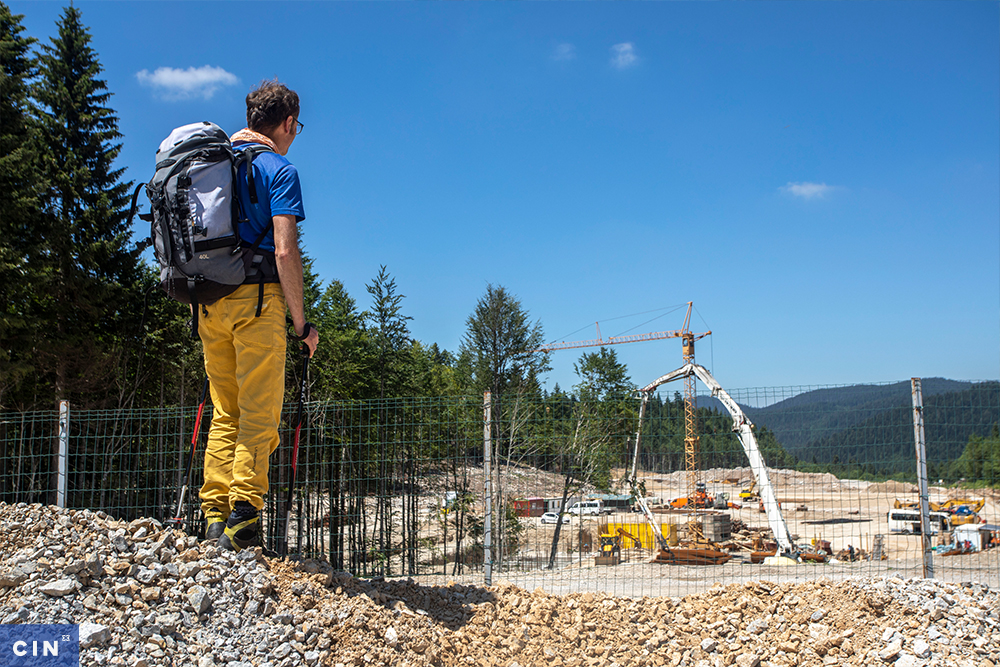Every month, citizens of Bosnia and Herzegovina through their electricity bill pay a fee for electricity generation from renewable sources. Over six years, they paid at least BAM 207 million, which the Entity authorities distributed mainly to private companies as an incentive for the production of the so-called “clean electricity”. These companies are owners of 525 small hydropower plants (SHPPs), wind farms, solar, biomass and biogas plants that produce about two percent of the country’s total electricity production, and generate large revenues from the incentives.
Although incentivizing the operation of such plants was supposed to protect nature, the large sums of money provided by citizens each month have turned electricity generation from renewable sources into a lucrative business with little investment and even lesser care for the environment.
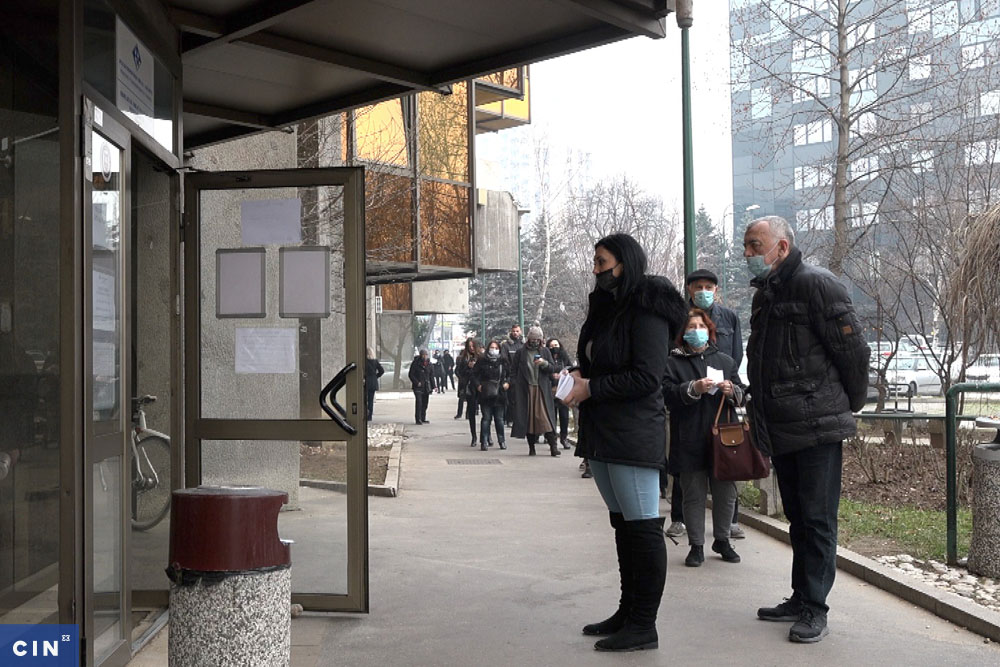
Most of the hundred BiH citizens who spoke to the CIN reporters were not aware of paying this fee nor did they know where the money went. Mirsad Pajević from Sarajevo did not like the fact that he has to finance this cost: “Next time, I’ll only pay only what I read on the meter, which means my consumption without these fees.”
Small plants, big profits
In 2005, BiH signed the Energy Community Treaty with the European Union (EU) and seven other countries: Albania, Bulgaria, Croatia, Northern Macedonia, Montenegro, Romania, and Serbia, thus committing to implement the EU Renewable Energy Directive. The goal was to increase foreign and domestic investment in renewables, clean energy generation, provide new jobs, and protect the environment.
To live up to its commitments, the Federation of BiH (FBiH) and the Republika Srpska (RS) have passed laws and action plans. They pledged that by 2020, 40% of the planned electricity consumption will be from renewable sources, and decided to achieve this by providing benefits and incentives to generators.
Thus, FBiH and RS began to sign contracts mainly with private companies for the period of 12 and 15 years, respectively, for the electricity generation in SHPPs, wind farms, and solar power plants, and for five years for generation in other power plants.
“I really don’t know of any other example of a business where someone guarantees both the market and the price 15 years in advance”, says economist Damir Miljević, author of the Analysis of the Economic and Social Benefits and Harms of SHPP incentives.
With these contracts, the Entity power utilities committed to purchasing all electricity at guaranteed prices that will not change regardless of changes in the market. Also, the generators receive a monetary incentive, the amount of which depends on the amount of electricity generated. This is paid by citizens through a monthly fee for renewable energy sources and is allocated by the Entity Incentive System Operators. Thanks to this system, the generators earn twice as much as power utilities. Željko Ratković, director of the Investment Department in Elektroprivreda RS, explains that the owners of these plants sell electricity at a higher price: “Simply put, the price they get according to the legal regulations is higher than the price at which Elektroprivreda exports and sells electricity to domestic consumers.”
At the same time, their costs to the state boil down to the payment of a concession fee, which is not uniform (it ranges from 1% to 15% of total revenues from the sale of electricity) but decided at discretion in each individual contract.
From 2018, in RS a single fee of 0.0055 is charged to the amount of electricity generated. However, this calculation is binding only for new plants, while the owners of the existing plants are left to decide whether to pay the so calculated charge or a percentage from their contracts.
According to data collected by CIN reporters, the most money in the last six years has been paid for 103 small hydropower plants – just over BAM 136 million. Almost BAM 30 million was given for wind farms, while the operation of solar power plants was stimulated with about BAM 37 million, biogas power plants with BAM 3 million, and biomass power plants with 670 thousand marks. These amounts are even higher because the Federal RES Operator and the FBiH Ministry of Energy, Mining and Industry do not have data on paid incentives in 2016 and 2017.
Despite all, the Entity authorities issue new concessions every year, which mean a new cost through incentives and higher prices for renewable energy sources to be paid by citizens. Thus, in 2020, ten times more incentives were paid to investors compared to 2015. Most of them were approved to build SHPPs.
“It was not us who invented the incentive scheme for SHPPs and the term SHPP itself. This is our obligation under the Energy Community Treaty and our action plans”, says Milan Baštinac, assistant minister of RS Ministry of Energy.
However, this treaty does not impose on BiH how it will support generation from renewable sources, nor does it stipulate to what extent it shall use different energy sources. These rules were created by the Entity authorities themselves.
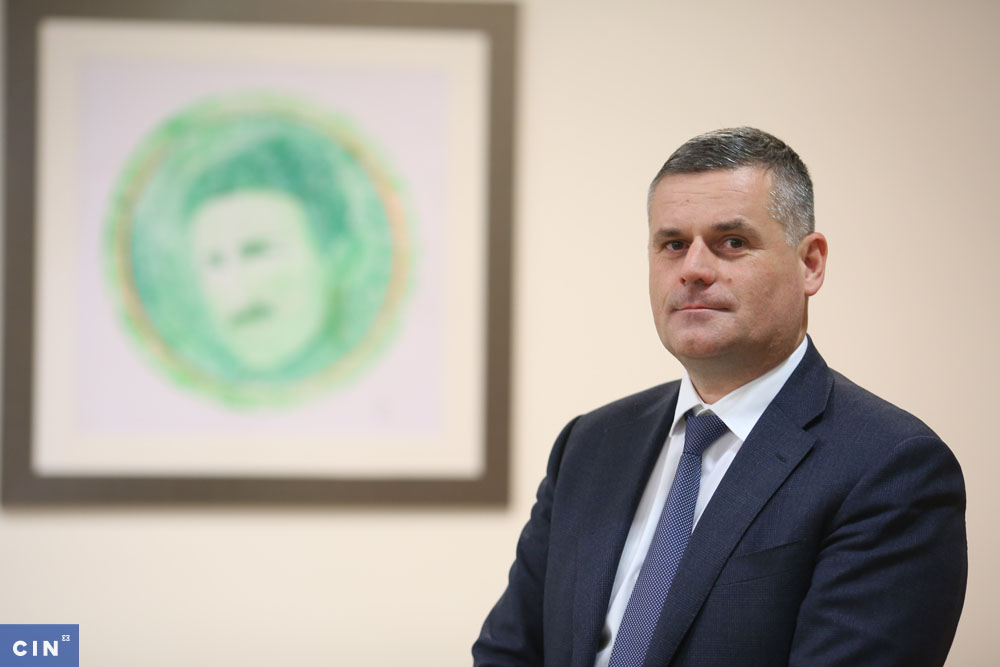
Baštinac claims that all locations attractive to investors are “more or less exhausted”, and reminds that all contracts were necessary because the country needs to have a surplus of energy: “We don’t want to find ourselves in the position with the production and industrializations spiking and us not having energy facilities to support them. Then we would definitely be in trouble.”
One company more plants
The biggest generation incentives were granted to the companies Hidroinvest, Strajko-inžinjering, and ECO-KW by brothers Tihomir and Robert Brajković. Their three SHPPs and the solar power plant has brought them about BAM 27.6 million over the last six years. At the same time, other companies of Tihomir Brajković owed millions of marks of unpaid taxes, which were written off due to the statute of limitations. Although Brajković was convicted of tax evasion, the authorities did not see this as an obstacle to cooperation with this individual who benefited in many ways.
Robert Brajković says that small hydropower plants bring a lot of benefits and that the damage occurs only if these facilities are built unprofessionally: “It is according to all the new environmental protection rules, and it is exactly why it is incentivized.”
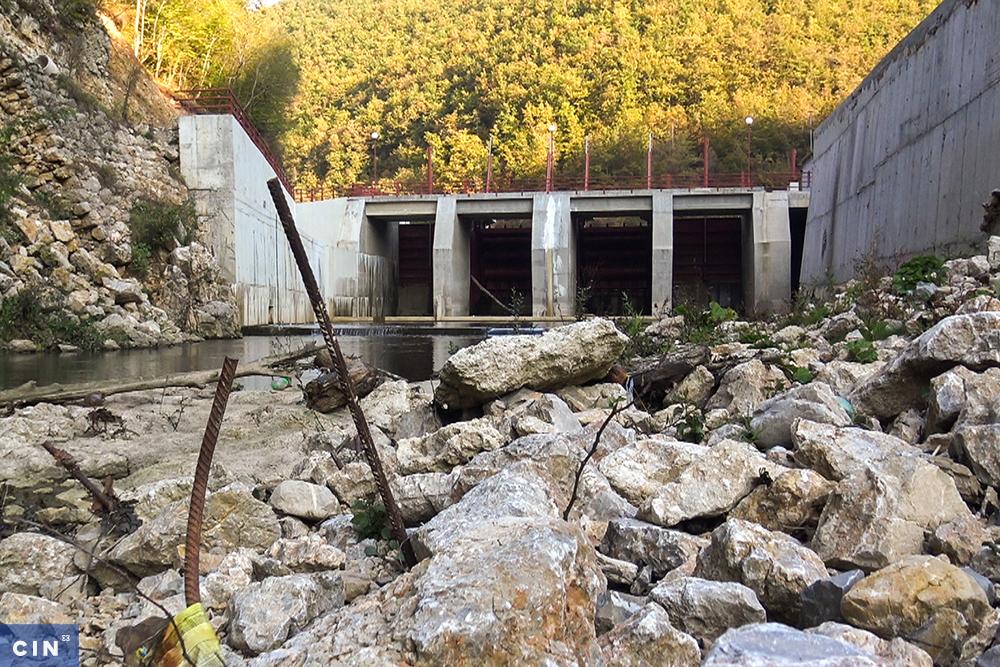
A somewhat smaller amount was granted to eight mini-hydropower plants of the Slovenian company “Interenergo”, which received BAM 22.3 million in incentives over six years. CIN reporters found non-compliance with regulations during the construction and commissioning of two SHPPs owned by them on the Ugar River.
According to the RS Inspectorate, the construction of SHPP Zapeće was not in line with the approvals, so during 2014, the inspection stopped the construction. In a short time, the owners obtained a new building permit, which corresponded with the performed works. The irregularity was thus eliminated, and the works continued unhindered.
Inspectors found that SHPP Novakovići was commissioned, although a fishway that would enable the unimpeded passage of fish from the upper to the lower course of the river was never built. Investors built the fishway six months after the inspection. Both SHPPs subsequently received permits from the RS Ministry of Physical Planning, Construction, and Environment to generate electricity at twice the power originally approved. This means they use more water power, generate more electricity, and get more money from sales and incentives.
From EHE, the company responsible for this SHPP within the ‘Interenergo’ group, say they can talk about this topic only after the holidays.
Three companies owned by Eling inžinjering from Teslić, one of which is co-owned by Slovenian Petrol, have received slightly more than BAM 16 million in incentives for five SHPPs in these six years. During the construction of one of them – Ilomska – the RS Inspectorate established that the works are not performed as specified in the construction permit and that the investor does not have a valid environmental permit. Namely, the permit they had was issued by the Municipality of Kneževo, not the RS Ministry of Physical Planning, Construction, and Environment, hence in 2013 the construction was stopped. After two lawsuits, their license was finally declared valid in late 2017, but the inspectors meanwhile discovered a new problem: During the court process, Ilomska continued to generate electricity without the permission of the RERS. CIN reporters learned that during that time, this SHPP nevertheless received one and a half million marks in incentives. Reporters could not reach the representatives of Eling inžinjering, as their company’s phone numbers are out of order.
Eling inžinjering was granted a permit to increase the capacity, so Ilomska now generates electricity at a capacity 22 times higher than originally approved.
According to EU regulations, all plants with more than 0.5 MW of installed capacity are considered large plants, and their incentives are calculated based on the revenues from the sale of electricity. In BiH, such conditionality does not exist, so all plants up to 10 MW are stimulated in the same way – with a feed-in tariff and incentives.
Slovenian and related companies made the largest profit on the plants with higher installed capacity – up to 6.8 MW. At the same time, in their home country, SHPPs of such capacity are not eligible for incentive schemes, hence these companies at home focused on solar power plants, while in BiH they built 12 SHPPs.
By comparison, in 2020, Slovenia paid six million marks of incentives for 76 small hydropower plants, while BiH paid BAM 36 million for 102 small hydropower plants.
Incentives for the generation of “clean electricity” were supposed to reduce the generation in thermal power plants and the release of harmful gases in nature, but this has not yet happened. Namely, thermal power plants are still the leading generators, providing 64.6 percent of the total energy generated in BiH.
Nusret Drešković, professor and dean at the Faculty of Natural Sciences and Mathematics in Sarajevo, says that SHPPs are considered a renewable and clean source, but in fact, they are “extremely dirty energy” the generation of which dries up the riverbeds and destroys wildlife in the water and on the riverbanks thus harming the natural ecosystems.
The environmental and economic damage
SHPPs have proven to be the most harmful concession activity in the field of renewable energy sources due to the destruction of natural resources in return for small benefits to society.
Environmental impact assessment studies and monitoring of work and compliance with environmental permits are performed by licensed private companies hired by plant owners. “And naturally, such studies will show that the project will not harm the natural environment,” says economist Damir Miljević. The RS Ministry of Physical Planning, Construction and Environment says that the companies are accountable for quality of data presented in the study, and had the Ministry established that the data does not correspond with the reality, such company would have their license revoked.
Although entity institutions and officials have recently acknowledged their detrimental impact, SHPPs continue to operate and owners continue to receive citizens’ money. In its 2019 report, the RS Energy Regulatory Commission responsible for monitoring the electricity market in the Entity warned that many SHPPs are being built in the planned or already declared protected areas which should not be happening. They also drew attention to the detrimental consequences of the increasingly frequent construction of sequential SHPPs in one basin, as is the case in Ugra, Govza, and Prača. It is on these rivers that the plants of Slovenian companies and the Brajković brothers’ companies are located, which have received the most money from incentives in the last six years.
Authorities in BiH generally issue permits for the construction of SHPPs whose powerhouses are being built downstream of the dam and the water is flowing through a pipe. The riverbeds should retain a sufficient volume of water to maintain normal life in the river, but this is often not the case because no checks are made on the environmentally acceptable flow of water in the riverbed when issuing construction permits.
“Well, those derivation hydropower plants, they sometimes (…) disturb the environment a little more,” said Željko Ratković from Elektroprivreda RS, explaining that such SHPPs are cheaper, and that is why there are more of them.
Professor Drešković adds that artificial accumulation created by SHPPs has a negative impact on the health of people, as these accumulations increase the evaporation, humidity, and fogging of the space. In his view, the focus should be on other energy sources, the optimal utilization of which should be thoroughly investigated: “Freshwater is a resource. Whoever has freshwater will survive. And we are behaving quite the opposite at the moment.”
Despite all this, the competent institutions claim that the construction of SHPPs has a positive impact on the development of local communities, the economy, and the employment of the population. They also consider the concession fee paid by SHPP owners important.
“We are all satisfied in some way in that process. After all, when the concession contract expires, the facility is handed over to the state for use,” said Halko Balavac, assistant minister at the FBiH Ministry of Energy, Mining and Industry.
Željko Ratković from Elektroprivreda RS believes that the benefit per capita varies from facility to facility: “If we are talking about an investor, the investor will certainly have the greatest benefits, otherwise they would not be investing. If we are talking about the population in that area, it should also have some benefit.”
In 2019, the owners of small hydropower plants in RS were paid almost BAM 34 million in incentives. At the same time, they gave the local communities in which their SHPPs were built eleven times less money.
It is this ratio that makes the economist Miljević claim a little good of this for society: “The basic question is why do we want small hydroelectric power plants at all since they have extremely small capacities? They do not contribute to the security of supply, the local community does not benefit from it, there is potential harm, and the benefit, if any, is small, right? We are destroying biodiversity, and the question is what we are doing. What benefit does society have? There is no benefit to society! There is for individuals though.”
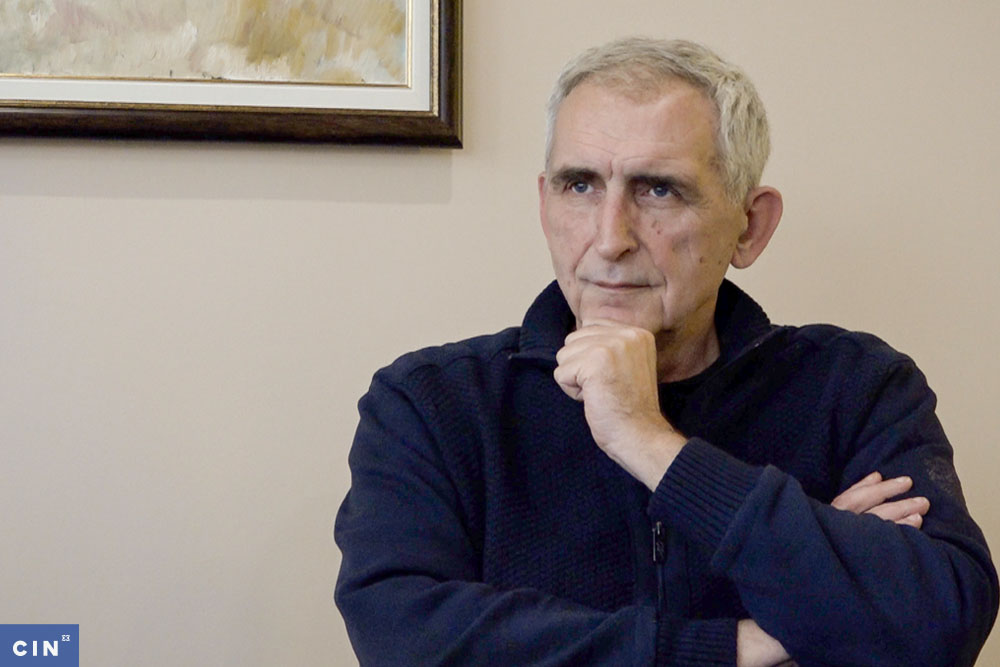
At the same time, the Federation Parliament and the FBiH Government have repeatedly debated the possible ban on the construction of SHPPs and the suspension of incentives schemes for these plants. A few months ago, Prime Minister Fadil Novalić held a meeting with representatives of environmental associations and relevant ministries. At the time, he called the SHPPs a “significant social problem”.
“Our nature and mountains are attacked, and the benefit we see in the obtained electricity is negligible and is exclusively distributed to a small number of private owners,” Novalić said on that occasion.
However, the Federation Ministry of Energy told CIN that everything will probably remain the same for time being. As for the ban on the construction of SHPPs, they say, the regulation should be amended first, and even then, the abolition of incentives could be applied only to future plants. RS institutions do not even consider this possibility.
“Once you have signed a contract guaranteeing something to someone, you cannot change it unless they agree. And no one sane would agree to it”, explains economist Damir Miljević.
As many as 82 out of a hundred BiH citizens interviewed by CIN journalists did not know that they were paying a fee for renewable sources in addition to their electricity bill. While some say they pay the bills without paying attention to details, others feel that it is not okay to take money from citizens and finance private businesses in this way.
“It’s like me going to a hotel now, eating and sleeping, and then sending the bill to someone else to pay,” said Anto Ljubaš from Bugojno.

















